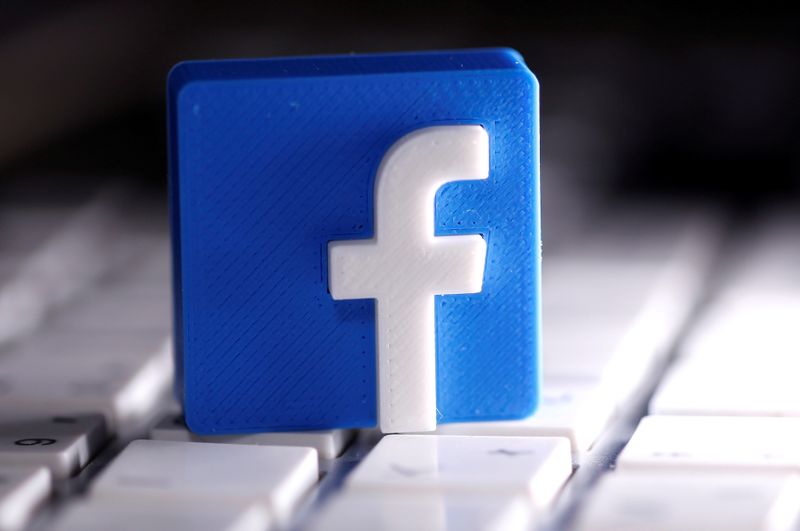By Katie Paul and Munsif Vengattil
(Reuters) - Facebook Inc (O:FB) beat analysts' estimates for quarterly revenue on Wednesday and said it has seen "signs of stability" for sales in April after a plunge in March, in yet another signal that tech giants may weather the coronavirus-induced economic collapse better than other sectors.
The announcement came a day after Alphabet's (O:GOOGL) Google said a drop in its online ad sales similarly steadied in April. Shares of Facebook, the world's biggest social network and the owner of WhatsApp and Instagram, soared 9% in extended trading.
Facebook said advertising revenue was roughly flat in the first three weeks of April compared with the same period last year, a tentative early sign of recovery following a "steep decrease" in revenue in March as lockdowns took effect worldwide to slow the spread of the virus.
Revenue growth was 18% in the first quarter, Facebook's slowest ever by a wide margin, although it beat analysts' expectations for growth of 16%, according to IBES data from Refinitiv. Ad sales, which make up nearly all of Facebook's revenue, rose 17% to $17.44 billion.
Some businesses took advantage of bargain pricing to run a heavier volume of ads after the pandemic wiped out Facebook ad pricing over the course of the quarter, contributing to a 39% increase in total ad impressions, executives said.
Chief Operating Officer Sheryl Sandberg told analysts the company saw an increase in gaming ads and steady spending from technology and e-commerce players, which offset "significant declines" in ads from the hard-hit travel and auto sectors.
GLOOMY OUTLOOK
Even so, analysts have a gloomy outlook for Facebook's second quarter, with advertisers across industries slashing marketing budgets in response to virus-related uncertainty, including many of the small businesses and direct-to-consumer brands that market themselves heavily on Facebook.
Flat revenue in April indicates that the second quarter will be "more challenging" than the first, said eMarketer analyst Debra Aho Williamson, as countries emerge from lockdown and businesses reopen at varying rates.
The company said around 3 billion users interacted with at least one of its apps each month in the quarter, up from 2.9 billion last quarter, as social networks use surged during coronavirus lockdowns. Some of that engagement is expected to slip once shelter-in-place orders are relaxed, it said.
Chief Executive Mark Zuckerberg cautioned against a rush to end lockdowns.
"I worry that re-opening certain places too quickly before infection rates have been reduced to very minimal levels will almost guarantee future outbreaks and worse longer-term health and economic outcomes," he said.
He struck a markedly different tone from fellow Silicon Valley chief executive Elon Musk, the head of Tesla (O:TSLA), who called the lockdowns "fascist" on Tesla's earnings call on Wednesday.
KEEP ON BUILDING
Executives said Facebook will move forward with plans to hire 10,000 new employees this year, largely in product and engineering roles, but will pull back on hiring plans for business departments like ad sales.
Facebook lowered its guidance for total expenses in 2020 to $52 billion-$56 billion, down from a prior range of $54 billion-$59 billion, citing the slower headcount growth and savings from canceled travel, events and marketing.
Total costs for the first quarter rose just 1% to $11.84 billion.
Zuckerberg said he accepted that profit margins will decrease this year, but said he was committed to maintaining plans for investment "rather than slamming on the brakes now, as I think a lot of companies may."
He said he aimed to "keep on building and keep on investing," particularly to "make up for some of the stuff that other companies would pull back on," which in some ways was "an opportunity" for Facebook, given its deep cash reserves.
Zuckerberg said he would eventually plan to moderate expenses over time, noting that the company's strong finances amid the economic pullback "has certainly reinforced for me the importance of maintaining high margins."
